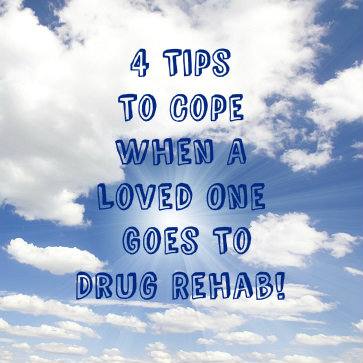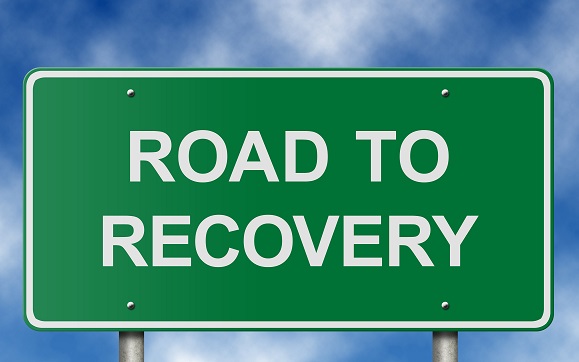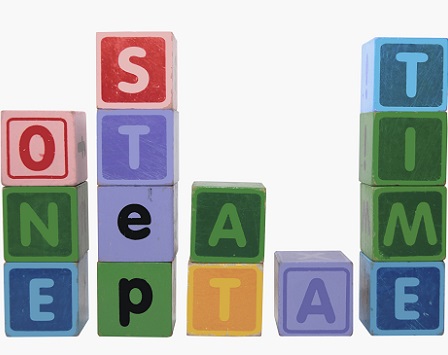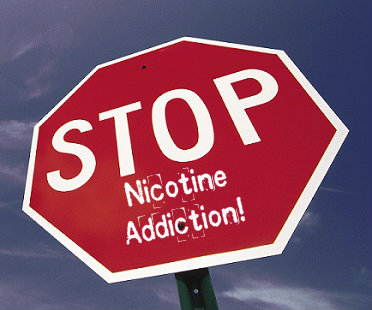10 Jul 2014
What, You’re An Atheist? You’ll Never Get Sober!
Atheists in AA may get the impression that they’re going to have it tough. All the talk of a higher power might be abhorrent to you, and like The Fix writer Bill Manville, you might be told that “Booze is too tough to beat all alone without the help of Jesus and His Infinite Mercy.” But is this really true? If you’re an atheist, is AA just a waste of time because it requires you to accept something you can’t fathom? Bill wondered this himself, but he attended anyway and—aside from one short relapse—has been sober for 20 years. So how did he do it? Esprit de corps, or in English: group cohesion.
Lyrics Without The Music: Drawing Parallels With Addiction Recovery
 Manville asks if you’ve ever read the lyrics to a popular song without the music pumping along to back it up. If you have, you’ll have undoubtedly noticed that without the thumping beat, the power of the words is diminished. It’s only when those lines are spoken with the incorporeal addition of the feel and strength of the music itself that they take on an almost mystical sense of meaning and importance.
Manville asks if you’ve ever read the lyrics to a popular song without the music pumping along to back it up. If you have, you’ll have undoubtedly noticed that without the thumping beat, the power of the words is diminished. It’s only when those lines are spoken with the incorporeal addition of the feel and strength of the music itself that they take on an almost mystical sense of meaning and importance.
He draws the analogy between this and addiction treatment. When you attend lectures on addiction, learn about the consequences, causes and anything you can about your problem, it’s like reading the lyrics without the music. You understand the meaning in a flat, emotionless sense (and the message that you should stop abusing drugs) but you don’t have thumping, powerful drive underpinning it all that motivates you to action. It’s missing the music.
The Therapeutic Community And AA
The rehab Manville eventually attended called itself a “therapeutic community,” with a counselor commenting that, “it’s the existential experience of going through the process with a bunch of other addicts and drunks—all of whom want to stop too—that changes the self.” Despite his initial skepticism, he found himself beginning to understand the importance of this community aspect.
He likens it to the Army, where the tough experience of basic training builds a group morale that gives the otherwise uninspired the motivation to rush into enemy territory to complete the mission at hand. The fact that you’re part of a larger group that shares your mission and has experienced the same sort of problems you have gives you that same type of motivation. You aren’t just one person being asked to tackle addiction alone. You’re part of a larger, stronger group and that in itself gives you the motivation to fight.
Getting Sober Without God
In AA, the “higher power” doesn’t have to be a deity, to the relief of any addicted atheist. Manville found his higher power in a different place: the esprit de corps and the desire to socially fit in with the new group did it for him. That was where the music came from. His theory is explained perfectly in his attitude to the Lord’s Prayer as an atheist. He writes, “When I join hands with fellow members at the end, I feel so buoyed by this merging of self into the greater whole that I find myself reciting the Lord’s Prayer aloud just like rest, and if there is indeed a God listening above, I hope my over 20 years sobriety will make Her smile.”
Becoming Empowered Without Religion
The feeling of being part of a larger group gave Manville his power to overcome addiction, but the important lesson for atheists in AA isn’t that you need to embrace the group or you won’t get sober. Embracing and connecting with the group is important for many other reasons, but the thing that spurs you on personally (the “music” for you, if you will) can be anything that works for you.
The true lesson from Manville’s story is that atheists in AA need to understand that you don’t need God to get sober, just something—anything—that takes the intellectual lessons you’ve learned and provides the underlying vigor you need to turn them into reality. Becoming part of the group is just one potential solution. You need to find the one that works for you.
Learn More About Alternative Addiction Therapies
09 Jul 2014
4 Tips To Cope When A Loved One Goes To Rehab
If you have a loved one struggling with addiction, getting her into rehab has probably been your top priority. Now that she’s gone, how do you cope? An important person is missing from your life. You have cared for her, been there for her, tried to help her overcome her addiction, and now you have turned your responsibilities over to someone else. You may be experiencing feelings of loss or guilt. Now is the time to learn how to take care of you, how to feel comfortable letting go, and how to get ready to have a sober loved one return home.
1. Learn About Addiction And Treatment
 Information is power and knowing more about what your loved one is going through will help you to better understand her. It will also help you to feel connected to her while you cannot be together. Read up on addiction, what it is, what it means for the addict, and how it impacts everyone around the addict. Learning about this disease will give you important insights into your situation.
Information is power and knowing more about what your loved one is going through will help you to better understand her. It will also help you to feel connected to her while you cannot be together. Read up on addiction, what it is, what it means for the addict, and how it impacts everyone around the addict. Learning about this disease will give you important insights into your situation.
You should also learn more about addiction treatment so that you know what is happening with your loved one at rehab. You may not be able to hold her hand through the process, but you will feel more comfortable when you understand what it entails. It may also be possible for you to get involved in her treatment at some level. Most rehab facilities offer family counseling as a component of treatment. Be sure to volunteer for these sessions to give you a chance to see your loved one and to participate in her care.
2. Join A Support Group
Being on the outside can be tough. You want to be there with her, helping her along the way. Surrendering that control to others is not always easy. One important way to cope with your feelings is to share with and learn from others. There are numerous support groups available to help the loved ones of addicts. They can be general groups that include all loved ones of addicts, or more specific. The great benefit in joining a support group is to share the burden of your grief, your guilt and all the other negative emotions attached to your loved one’s addiction and treatment.
3. Find Your Passion
As you learn to cope with having temporarily lost your loved one to rehab and treatment, it is important that you tend to yourself. For a long time you have cared for the addict in your life. You have looked out for her needs and spent so much of your time and energy worrying about her. Now that she is in the capable hands of treatment specialists, you can take care of you.
One of the best ways to do that is to focus on what you love to do. Return to an old hobby that you once felt passionate about or try something new that you have always wanted to do. The road ahead will be difficult and having something that’s entirely yours that you feel passionate about will help you cope both now and in the future.
4. Accept And Trust That Everything Will Be Ok – No Matter What
Having a loved one in rehab can be stressful for you. Just remember that you have left her in good hands with professionals who have experience treating addicts and who care about the patients they treat. Also remind yourself of how necessary this step was. She would never have been able to heal without professional treatment. Take care of yourself, participate in her sessions where possible and be ready to welcome back your sober loved one.
Read Our Other Posts For Friends And Family Of Addicts – Recovery Is Possible – Call Us Now To Begin The Path To Healing And Freedom From Addiction!
30 Jun 2014
Does Addiction Need To Lead To Divorce?
Addiction can wreak complete havoc on a marriage. The addict partner may neglect or even abuse his or her spouse, drain the family’s finances, and be completely unavailable to any family member. The resulting feelings in the non-addicted spouse often include depression, resentment, anger, and even outright hatred. It seems inevitable that these marriages are headed for divorce, but when both partners make a commitment to work through the issues, that outcome can be avoided.
How Can The Addict Turn Things Around?
 If you are the addict and you want to save your life and your marriage, the first and most important thing you can do is to get treatment for your addiction. Commit to your treatment plan and work hard to get sober and stay sober. This step is a powerful statement to your spouse about your intentions. Actions always speak louder than words; if you have promised your spouse again and again that you would get help but didn’t follow through, only action will save you now.
If you are the addict and you want to save your life and your marriage, the first and most important thing you can do is to get treatment for your addiction. Commit to your treatment plan and work hard to get sober and stay sober. This step is a powerful statement to your spouse about your intentions. Actions always speak louder than words; if you have promised your spouse again and again that you would get help but didn’t follow through, only action will save you now.
In spite of making the move to get help and make things better, some marriages fall apart once the addicted spouse enters recovery. Seeking addiction treatment means more time that you need to focus on yourself and your recovery to the neglect of others. As you go into rehab, talk to your spouse and explain that you will need to be self-involved for a little bit longer, and that it is necessary in order for you to get well again. Ask for patience and time. Involving your spouse in the process to some extent can be helpful for your marriage. Consider including some therapy sessions with the both of you so you can start working on rebuilding your relationship as you learn to be sober.
How Can A Spouse Forgive?
If you are the non-addict, forgiveness and repairing your relationship with your spouse may seem impossible. You have been hurt and ignored, time and time again, but as long as your spouse is seeking treatment, there is hope. Start on the path to forgiveness by learning more about addiction. The more you understand the disease, the more likely you will be to develop some compassion for your spouse.
It may also be helpful for you to seek some counseling. See a therapist who specializes in helping people who have been hurt by addicts. Also consider joining a support group for the loved ones of addicts. You can learn a lot from the experiences of others who have been in your position. The support and camaraderie can also be a powerful tool for healing. Once you have taken the time to work on yourself, be prepared to forgive and to get involved in your spouse’s treatment. Your marriage cannot move forward if you still harbor grudges and resentments.
What if Divorce Is The Best Option?
Despite your best efforts your marriage may be headed for failure. How do you know if divorce is your best option? If you are the recovering addict, no matter how much you try, your spouse may not be able to forgive you or get past the damage you have caused. If you are the injured party, you may try everything to get your spouse to stay clean, but you see failure again and again. If you can’t live with your spouse anymore, you may need to follow through with a divorce. Even if you do split up, keeping up with therapy for both spouses is crucial. You have both been damaged and you both need healing, no matter what happens to your marriage.
If You Or Your Spouse Is Struggling With An Addiction – Call Us Now – We Are Here To Help!
18 Jun 2014
Abstinence In Addiction Recovery
The prevailing view in addiction treatment and recovery is that abstinence is the best approach. This means that once drugs or alcohol are removed from the body following detox, the addict resolves to totally abstain from using them. The reasoning behind this idea is that an addict is incapable of moderation. Many addicts in recovery believe that they have learned how to partake responsibly and that they can have a drink or two at a party. Is it really possible? Or do you need to abstain for the rest of your life?
Why Abstinence?
 Abstinence as a philosophy for addiction treatment has been around for decades. Alcoholics Anonymous is one of the oldest support programs and is one that firmly believes in the importance of abstinence. Another model, similarly based on the 12 steps, is called the Minnesota Model and also calls for total abstinence from drugs and alcohol. For both programs, and any 12-step based program for addiction treatment, the primary goal is lifelong abstinence.
Abstinence as a philosophy for addiction treatment has been around for decades. Alcoholics Anonymous is one of the oldest support programs and is one that firmly believes in the importance of abstinence. Another model, similarly based on the 12 steps, is called the Minnesota Model and also calls for total abstinence from drugs and alcohol. For both programs, and any 12-step based program for addiction treatment, the primary goal is lifelong abstinence.
These addiction treatment programs advocate for abstinence because they believe it is the only way that an addict can return to a normal way of life. They claim that an addict in recovery cannot handle having just one drink, or using narcotic prescription painkillers. One small slip-up may lead to a downward spiral and a return to full-blown addiction.
Are There Any Non-Abstinence Treatment Options?
As addiction treatment advances and evolves, experts have developed models and programs that do not necessarily require abstinence. For example, harm reduction is a philosophy of treatment that is gaining ground. Long used for heroin addicts, harm reduction means taking steps to reduce risks and harm caused to addicts. It allows for addicts to reach sobriety on their own terms and in their own time. Heroin addicts being treated in this way are given maintenance drugs like methadone, or clean needles to reduce the risk of spreading infectious diseases such as HIV/AIDS, or hepatitis B and C.
Heroin addicts are not the only ones who are experimenting with non-abstinence. Other types of addicts are embracing the idea of moderation. Using alcohol moderately and responsibly is becoming more popular as a way for addicts to re-enter society as a contributing member. One such group advocating this approach, Moderation Management, believes in the possibility of changing behaviors without requiring total abstinence. In particular, they advocate for problem drinkers to learn how to become moderate drinkers.
Is Abstinence Best For Me?
Whether you need to embrace complete abstinence is a personal choice. Some people respond well to a non-abstinence-based approach. They can be successful at learning how to moderate drinking, how to drink socially and how to be responsible about drinking without taking a headfirst dive back into addiction. For others, however, this approach simply doesn’t work and complete abstinence is the only safe way to remain healthy and well.
Making the choice to embrace moderation is not a decision to make alone. If you are already in recovery, talk to your therapist, counselor, mentor, and your closest friends and family members. Getting treatment was not something you could do alone and making this choice isn’t either. If you decide to try drinking in moderation, make sure that the people who support you know about your choice and respect their opinions. If everyone says it’s a bad idea, listen. If you do try to drink and it causes a bad relapse, don’t feel bad. Just get back into your recovery routine, resume therapy sessions, if possible, and recommit to sobriety.
Learn More About 12 Step Treatment Programs – And Break Free From Addiction!
13 Jun 2014
Addiction On The Job
Drug addiction is a disease that takes over every aspect of life, from relationships and home life to job performance and career. Struggling with addiction, while also trying to maintain a position at work is a big challenge. You probably have many concerns and questions: Do my coworkers and my boss know? If I take time off for treatment will I lose my job? What about drug testing at work? Getting care for your addiction and getting well should be your top priority. However, you should also consider how it may impact your job.
Does Everyone At Work Know About My Addiction?
 It is not unusual to feel ashamed or embarrassed about having a substance abuse problem. You probably want to keep your addiction a secret from your coworkers and your boss, but the signs might be obvious. While many addicts are good at hiding their problem, there is a real possibility that everyone does know, or at least suspects.
It is not unusual to feel ashamed or embarrassed about having a substance abuse problem. You probably want to keep your addiction a secret from your coworkers and your boss, but the signs might be obvious. While many addicts are good at hiding their problem, there is a real possibility that everyone does know, or at least suspects.
If you have been actively trying to hide your addiction, this should be a red flag that you really do have a problem and need to seek treatment. It may be embarrassing to admit to your struggle, but your health and well-being are more important. If you haven’t yet sought help, consider inquiring with your company’s human resources department about an employee assistance program (EAP). If there is an EAP available, you can use it to get confidential help and resources for addiction treatment.
How Can I Face Going Back To Work After Rehab?
Getting help is your first step toward the rest of your life in sobriety. Making use of your company’s EAP you can find addiction treatment that works for you. You may even be able to attend outpatient treatment in the evenings and on weekends and not miss work. It is important that you understand your limits, though. If you are unable to resist the urge to keep using, you may need to go to a residential rehab facility.
If you are worried about being discriminated against because of your addiction, know your rights. The Americans with Disabilities Act does not protect you if you are still abusing illegal substances. However, if you are no longer using and are seeking treatment, you cannot be discriminated against in the workplace. Addiction is a disease and as long as you are getting treated for it, you cannot be punished at work.
While you may not be discriminated against officially, you may still feel that you are being subtly mistreated when you return to work after completing addiction treatment. You may feel stigmatized by your coworkers or feel that they no longer trust you or that they are excluding you. Sometimes these behaviors result from a genuine ignorance, as your coworkers may not have any experience with addiction. If you feel comfortable doing so, offer to discuss the situation with a curious coworker. This may help your reintegration into the workplace.
Another issue with going back to work is the possibility of relapsing. Going back to the job can be stressful and turning to drugs is your natural response to stress. Before returning to the workplace, be sure you are ready and have a plan in place for resisting the urge to use again. This may mean having loved ones ready to support you when you feel like using or having a support group to attend. The most important thing is your health. Work is important too, but you won’t be able to do your job fully until you have taken care of yourself and your recovery.
Call Us Now – If You Or A Loved Have Rehab Questions Or Need Addiction Help!
Deciding to admit to your problem with addiction is a big accomplishment. Denial and fear are major roadblocks that keep so many addicts from ever coming clean. Once you have made the admission and decided to get help, though, you still have many steps to go until you reach sobriety and recovery. The first step is detoxification, or detox. What happens during detox may be uncomfortable and painful, but it will bring you through to the other side and set you on the path to your personal recovery journey.
What Do You Do In Drug Rehab?
 Drug rehab is how you move from the world of addiction to a life of sobriety. It is a transition period that will help to transform you. The first part of rehab is detox, although some facilities require that you detox before you even get there. In this case, you can find a location that specializes in detoxing before you enter your long-term rehab facility.
Drug rehab is how you move from the world of addiction to a life of sobriety. It is a transition period that will help to transform you. The first part of rehab is detox, although some facilities require that you detox before you even get there. In this case, you can find a location that specializes in detoxing before you enter your long-term rehab facility.
Once you have completed a detox, you will go through a series of counseling sessions and other activities designed to help you learn more about yourself and your addiction. One-on-one therapy sessions are personal and will help you get to the root of your problem. Group work will help you empathize with others and learn from their experiences. Other activities help you to relax without using drugs or alcohol and teach you strategies for staying sober.
What Happens During Detox?
Your first step in the process of recovery is detox. What happens during this step is that your body is cleared of all substances so that you are completely sober and ready for the rest of your journey. During this process you will experience the symptoms of withdrawal: irritability, restlessness, anxiety, insomnia, nausea, headaches, vomiting, diarrhea and more. It is unpleasant, painful and difficult, but it is necessary.
Are There Different Kinds Of Detox?
Different facilities may offer different ways of detoxing. Many will simply do it the natural way: allowing your body to eliminate the drug or alcohol over a period of several days without much intervention. Some facilities may offer medicated detox, which involves giving you medications to relieve some of your withdrawal symptoms. Others may offer rapid detox. This means putting you under anesthesia for a couple of days so that you essentially sleep through your detox. This is a controversial method, but one many people find attractive.
Any successful drug rehab includes a period of detox. You cannot begin to enter recovery until you have stopped abusing substances and let the drugs and alcohol pass completely from your body. With the right professionals on your team, you can get through it and come out on the other side ready for rehab.
Read More About The Origins And Developments In Detox Addiction Treatment
According to the Centers for Disease Control and Prevention, tobacco use is the leading preventable cause of death in the United States. This is why helping people quit smoking is such a priority. Unfortunately, most smokers find it very hard to give up the habit. The Smoking Treatment for Ontario Patients (STOP) program—funded by the Ontario Ministry of Health and Long-Term Care—is one approach that manages to increase quit-rates by providing nicotine patches and psychological treatment to smokers, and could serve as an example for U.S.-based organizations. The initiative started in 2005 and now runs numerous times per year, offering smokers the opportunity to break free of their addictions and get healthy.
Why Is It So Hard To Quit Smoking?
 Although tobacco is a widespread and legal substance, quitting it is hard for many of the same reasons that it’s difficult to stop using illegal drugs. Nicotine—the addictive component of cigarettes—releases dopamine in the brain, the neurochemical responsible for the majority of addictions. When the body gets accustomed to it, the external “boost” that smoking provides stops, and this leads to an imbalance in brain chemicals followed by unpleasant symptoms. The problem is compounded by the fact that research indicates “cold turkey” (unsupported) quitting is the most popular method, but is a considerably less successful strategy than counseling, medications and nicotine replacement therapy (like gums or patches). In short, smokers—with an already difficult task ahead of them—often try to quit by themselves, which is statistically the least successful method.
Although tobacco is a widespread and legal substance, quitting it is hard for many of the same reasons that it’s difficult to stop using illegal drugs. Nicotine—the addictive component of cigarettes—releases dopamine in the brain, the neurochemical responsible for the majority of addictions. When the body gets accustomed to it, the external “boost” that smoking provides stops, and this leads to an imbalance in brain chemicals followed by unpleasant symptoms. The problem is compounded by the fact that research indicates “cold turkey” (unsupported) quitting is the most popular method, but is a considerably less successful strategy than counseling, medications and nicotine replacement therapy (like gums or patches). In short, smokers—with an already difficult task ahead of them—often try to quit by themselves, which is statistically the least successful method.
Physical Withdrawal Symptoms Of Nicotine Withdrawal
Like with other drugs, when you stop consuming nicotine you may feel a wide range of physical symptoms. The most common smoking withdrawal symptoms are agitation, irritability, weight gain, depression and anxiety. The negative symptoms come on because the individual is no longer getting the nicotine he’s become dependent on, and the brain knows it, creating cravings in an attempt to make the individual succumb to temptation and give it another hit of nicotine.
Psychological Challenges Of Quitting Smoking
Although the physical withdrawal symptoms add to the discomfort of quitting smoking, the psychological effects are what drive many ex-smokers to relapse. Smoking, like other drug addictions, is a poor coping strategy for dealing with everyday problems, and when these problems return, the individual is at particular risk for relapse. Both internal and external “triggers” to smoke can make the process more difficult, with internal factors including things like stress and depression and external ones including things like being around a friend who smokes or taking a work break that you previously used for smoking. These things push the individual back to smoking, and in combination with the physical withdrawal symptoms, they make the process of quitting extremely challenging.
Benefits Of Initiatives Like STOP
These issues are what make initiatives like STOP so worthwhile. The core selling point of STOP is that attendees receive five weeks’ worth of free nicotine patches, which ordinarily cost around $30 per week, meaning they save around $150. This removes what some see as a financial barrier to getting the support they need, but the support also takes the psychological elements into account. Each qualifying smoker is also eligible to attend workshops and receive ongoing support to help manage triggers and cravings.
This broad range of support contributes to the impressive success rates enjoyed by the initiative. Oxford County’s tobacco control coordinator Dominique Bruce points out that those in the program have a quit rate that’s 50 percent higher than those not in the program. She also points to the cost savings and psychological support offered by the program. “If you slip up, you need to remember it’s just a slip up, not a fail,” Bruce said.
The Right Way To Help People Quit Smoking
There are many lessons that can be learned from programs like STOP, and although this initiative is in Canada, U.S.-based stop smoking initiatives can take a cue from the approach and work to reduce the preventable diseases and deaths caused by smoking. The smokers themselves face the biggest challenges, but with the right support and the guidance to help them push through the difficult periods, they have the ability to kick their tobacco addiction for good. As long as we understand the challenges inherent in quitting smoking—or kicking any addiction—we can find the compassion to help those in need and the wisdom to do so in the most effective way possible.
01 May 2014
Is Repairing Your Marriage After Rehab Possible?
Few things take a greater toll on relationships than addiction. If you are an addict in recovery and you are married, you may be wondering what will happen next. Is your spouse going to leave you? Will she ever trust you again? How will you ever make it up to her? Divorce in the aftermath of addiction is not uncommon, but it is possible to repair your marriage. You can make it up to your wife if you are both willing to do the work. The fact that you sought recovery is a sign that you can work toward repairing all aspects of your life damaged by addiction.
Is Divorce Inevitable After Addiction?
 Divorce may be common when one partner is addicted, but it does not need to be inevitable. Addiction is one of the biggest challenges your relationship will ever face, but you can bring it back from the brink. To do so, you both need to be on the same page. Have an honest and open discussion with your wife and find out if she is committed to working with you to repair your relationship. She may have doubts, but hopefully the fact that you were willing to ask for professional help will convince her that you are serious about making amends.
Divorce may be common when one partner is addicted, but it does not need to be inevitable. Addiction is one of the biggest challenges your relationship will ever face, but you can bring it back from the brink. To do so, you both need to be on the same page. Have an honest and open discussion with your wife and find out if she is committed to working with you to repair your relationship. She may have doubts, but hopefully the fact that you were willing to ask for professional help will convince her that you are serious about making amends.
How Do You Make Amends To Your Spouse?
Making amends is an important part of the recovery process and no one deserves it more than your partner. Addiction leads people to do hurtful things to the ones they love the most. You may have lied to her, cheated on her or neglected her. You have a lot of making up to do, and although it may seem daunting, it is possible.
Making up for all the hurt and damage does not mean that you have to spend the rest of your life groveling and giving in to your spouse. If that is what she is expecting, you are both headed down the wrong path. Making amends means apologizing and restoring her faith in you. To do so you need to treat her well, make heartfelt apologies and, most importantly, strive to avoid relapsing and sinking back into the hole of addiction.
Can Your Spouse Ever Trust You Again?
One of the biggest impediments to bringing back a healthy relationship is trust. What you damaged the most in your marriage was your wife’s trust. You probably promised over and over again to stop using, to stop lying, to stop cheating, and to be better. These were all promises you were incapable of keeping at the time, but they did damage to trust nonetheless.
The only way to develop trust is to earn it. Unfortunately, earning trust takes much more time than losing it. It takes many repeated instances of being reliable and dependable to earn trust. Make sure your wife understands that her trust will be slow to regain. Keep being the person she needs you to be, and with time, she will trust you again.
Repairing a marriage after the devastation caused by addiction is a difficult challenge, but not an impossible one. Be sure to communicate with each other about what you are feeling; rekindle your love for each other by spending quality time together and consider seeking the help of a professional marriage counselor. Perhaps most importantly, continue to work on your own recovery. The best way to show your spouse that you are committed to rebuilding your relationship is to stay sober and avoid relapse.
Find Out What Are The Ways To Recognize Addiction Denial In A Loved One?


